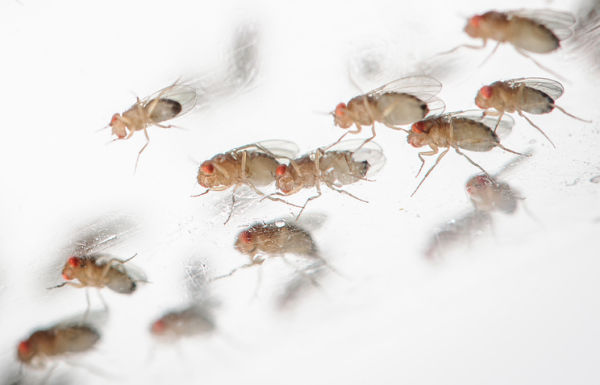Irina Ogneva, Head of the Laboratory of Cell Biophysics at the Institute of Biomedical Problems of the Russian Academy of Sciences, said that both males and females will be involved in the experiment
MOSCOW, October 28. /tass/. About 1,500 fruit flies will be sent to a high-latitude orbit aboard the biological satellite "Bion-M" No. 2 in 2024. This was reported to TASS by Professor, Head of the Laboratory of Cell Biophysics of the Institute of Biomedical Problems (IMBP) RAN Irina Ogneva.
"About 1,500 flies will fly on the Bion-M spacecraft No. 2. The existing launch dates of the biosatellite, the third quarter of 2024, are very well consistent with the preliminary program of flights to the International Space Station (ISS). With the flies, we plan to repeat the unique story that happened in 2014 after the flight of the Photon-M satellite No. 4, where the flies were in space for 45 days. It was a so-called "double flight" - when the flies returned on the Photon, the next generation was received on Earth, and then it went into space again, this time on the ISS RS," Ogneva said.
In 2014, during the flight on the biosatellite, fruit flies adapted to weightlessness and multiplied, and during the re-flight, the individuals obtained earlier in space multiplied even more actively. "The re-flight will be very interesting from the point of view of both the duration of the flight and the repeated impact, as well as different orbits. The main goal of our research is the effectiveness of maintaining the population in terms of long-term flights, in which there will be a different composition of ionizing radiation and a different electromagnetic environment in general than in a circular orbit, where the ISS is currently located," Ogneva stressed.
According to her, both males and females will be involved in the experiment. "The flight on the Bion will be very long in terms of the life cycle of flies - about 30 days. There will be several generations of flies. Now we are doing a lot of work to learn how to distinguish these generations, choose, and so on. The flies will lay eggs, before the flight we will release them from there and the embryos will fly into space. And the embryos that will become adult flies in zero gravity will postpone the next generation. Otherwise, we will not be able to avoid significant overpopulation. After all, 30 days is quite a lot," said the head of the Laboratory of Cell Biophysics of the Russian Academy of Sciences. The reproductive cycle of the fruit fly is about two weeks, during which time they go through several stages of development: eggs, larvae, pupae and adults.
During the flight on the Bion, Russian scientists will continue research using modified feed, which was carried out in 2023. "Of course, experiments with modified feed will be continued at Bion. We assume that an additional agent that is introduced into the feed will avoid the negative effects of weightlessness and neutralize any effects of ionizing radiation, if there are any. Today we cannot say with all certainty how the electromagnetic profile, including ionizing radiation, which is in orbit, where the Bion and subsequently the Russian Orbital Station will fly, will affect living organisms," Ogneva said.
Bion is a series of domestic spacecraft for biological research. In particular, scientists are interested in the effects of radiation and weightlessness on living organisms. The main object of research within the framework of the "Bion-M" projects are mice, insects, plants and microorganisms. The first such device called Cosmos-605 was launched in 1973. In 2013, the first satellite from the Bion-M series was put into orbit. Then mice, Mongolian gerbils, geckos, snails, plants and colonies of various microorganisms visited space.

